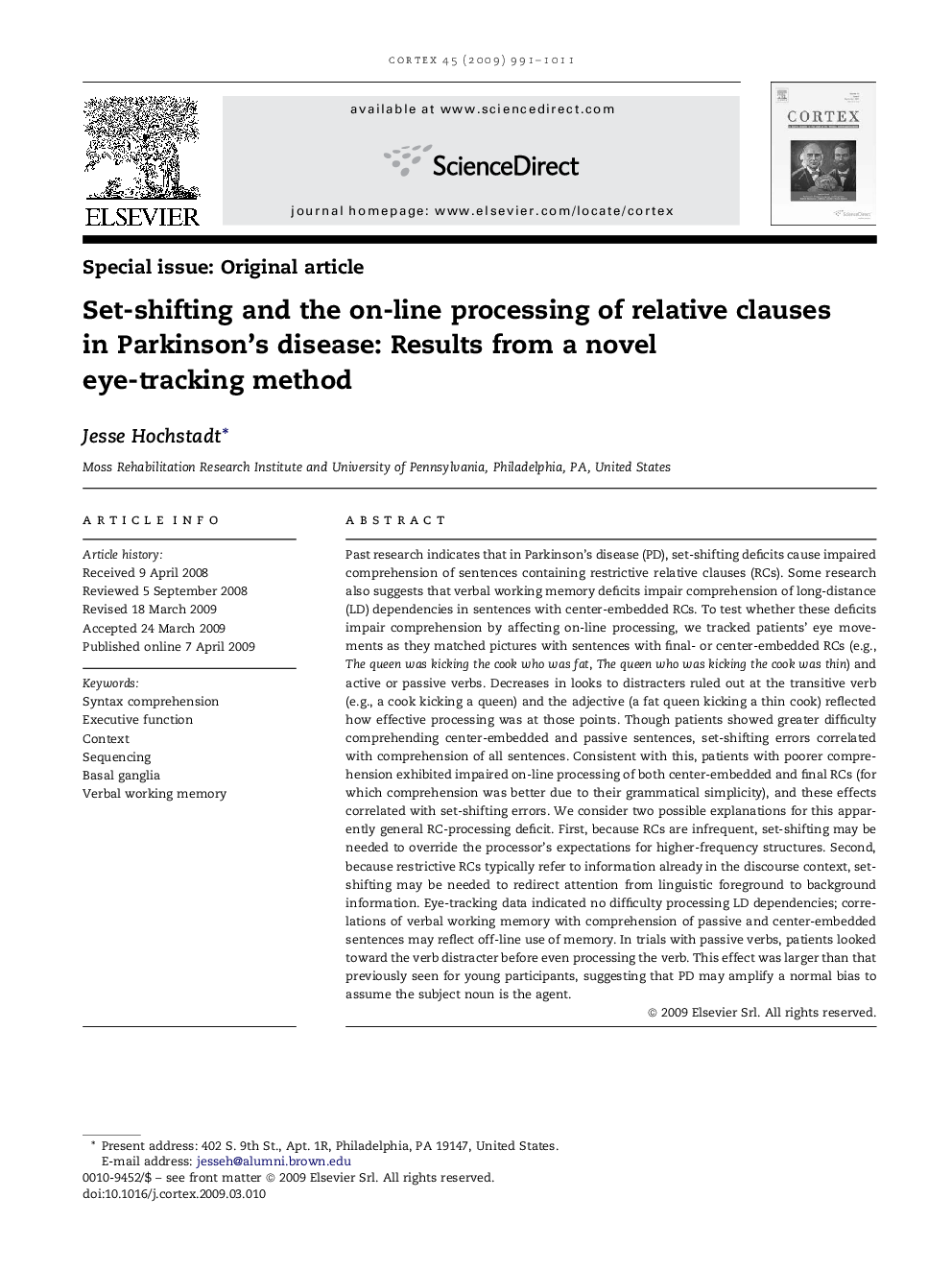| Article ID | Journal | Published Year | Pages | File Type |
|---|---|---|---|---|
| 942430 | Cortex | 2009 | 21 Pages |
Past research indicates that in Parkinson's disease (PD), set-shifting deficits cause impaired comprehension of sentences containing restrictive relative clauses (RCs). Some research also suggests that verbal working memory deficits impair comprehension of long-distance (LD) dependencies in sentences with center-embedded RCs. To test whether these deficits impair comprehension by affecting on-line processing, we tracked patients' eye movements as they matched pictures with sentences with final- or center-embedded RCs (e.g., The queen was kicking the cook who was fat, The queen who was kicking the cook was thin) and active or passive verbs. Decreases in looks to distracters ruled out at the transitive verb (e.g., a cook kicking a queen) and the adjective (a fat queen kicking a thin cook) reflected how effective processing was at those points. Though patients showed greater difficulty comprehending center-embedded and passive sentences, set-shifting errors correlated with comprehension of all sentences. Consistent with this, patients with poorer comprehension exhibited impaired on-line processing of both center-embedded and final RCs (for which comprehension was better due to their grammatical simplicity), and these effects correlated with set-shifting errors. We consider two possible explanations for this apparently general RC-processing deficit. First, because RCs are infrequent, set-shifting may be needed to override the processor's expectations for higher-frequency structures. Second, because restrictive RCs typically refer to information already in the discourse context, set-shifting may be needed to redirect attention from linguistic foreground to background information. Eye-tracking data indicated no difficulty processing LD dependencies; correlations of verbal working memory with comprehension of passive and center-embedded sentences may reflect off-line use of memory. In trials with passive verbs, patients looked toward the verb distracter before even processing the verb. This effect was larger than that previously seen for young participants, suggesting that PD may amplify a normal bias to assume the subject noun is the agent.
